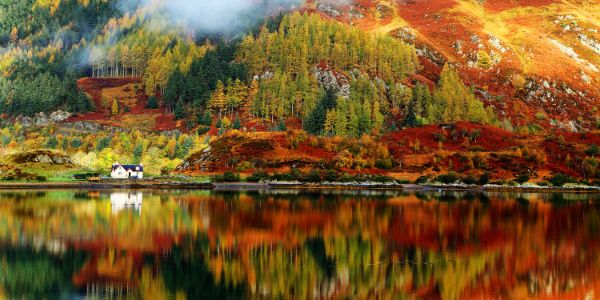WWF Report Highlights The Impact Of Climate Change In Scotland
In a new report, WWF Scotland has warned that animal and plant life faces increasing pressure from habitat destruction and global warming. The report highlighted moorlands, machair and more to be at risk because as temperatures rise producing warmer winters, there is a threat to the mountain-dwelling snow bunting. The report estimates that the breeding population of the species in that part of the country is down to 60 pairs and increasing temperatures will only lead to further reductions in the range of the species leaving it with nowhere to go.
Rising temperatures affecting flora and fauna
Rising temperatures means that the North Atlantic Ocean is also warming, impacting white beaked dolphins which need cold conditions to thrive. The species is being pushed away from the edge of its range in the Hebrides. Flora in wild spaces is also being affected with species such as leafy dwarf, willow and moss all experiencing declines. At the moment the Climate Change Bill is in front of Holyrood but conservation groups say the results from the latest study show there is a requirement for tougher legislation.
Climate change is happening in our backyard
The bill in its present form seeks to cut carbon emissions by 90 per cent by 2050, however there are now calls for the target to be raised to 100 per cent. Dr Sam Gardner of WWF Scotland says the country is very proud of its plant and animal life, but people need to become aware of the fact that it is increasingly experiencing pressure from climate change. This process isn’t just threatening polar bears in the Arctic but is also harming species and habitat right here at home.
Carbon reduction targets needs to be increased
Dr Gardner says that nature bears the brunt of climate change, with even minute rises in temperature having profound implications on the plants and animals that not only make Scotland’s landscapes iconic but that humans also depend on for their food. This is why it is critical that the Climate Change Bill currently in front of the Scottish Parliament is strengthened so that within a generation human involvement in climate change is ended entirely. There are calls climate reduction targets to be set at 100 per cent by 2040 and the Scottish Government has said it will attempt to do this as soon as possible in a credible and responsible manner.


